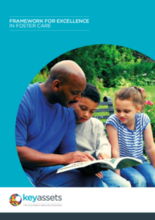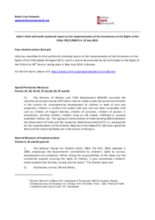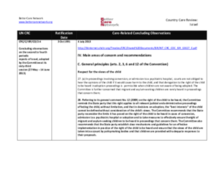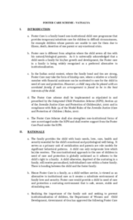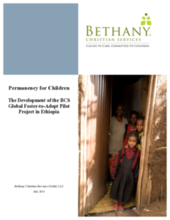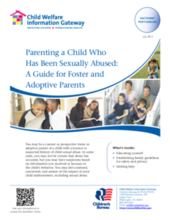Displaying 1921 - 1930 of 2221
This framework outlines what the Key Assets team understand by quality family based foster care and recognises the collective responsibility to promote the rights of children worldwide. Seven standards for providing quality foster care are outlined in this publication.
India submitted its third and fourth combined report on the implementation of the Convention on the Rights of the Child.
This article outlines an approach to assessing the quality of relationships between young foster children and their carers.
This video describes the work of the Alternative Care Panel in Uganda, a panel composed of professionals who assess the stability of potential adoptive or foster parents to determine if the parents can provide for needy and vulnerable children, with the ultimate goal of keeping children out of institutional settings and in family-based care.
This country care review includes the care related Concluding Observations adopted by the Committee on the Rights of the Child as part of its examination during the sixty-third session (27 May-14 June 2013) of Israel’s second to fourth periodic reports to the Convention on the Rights of the Child, as well as other care-related concluding observations, ratification dates, and links to the Universal Periodic Review and Hague Intercountry Adoption Country Profile.
The state cabinet of Goa in India has approved a foster care scheme to assist children deprived of parental care or of the care of guardians, and in need of protection. These government guidelines set out the purpose of the scheme, criteria for eligibility and procedures to be followed, including the relevant forms.
This report provides initial documentation of a pilot program launched by Bethany Christian Services in 2009 in Ethiopia. The pilot aims at moving children from institutional care to family-based care by developing alternative family care for non-relative children using a foster-to-adopt approach, working through a partnership between faith communities in Ethiopia and American faith congregations in the US.
This factsheet is designed for caregivers and discusses how they can help children in their care by educating themselves about child sexual abuse, establishing guidelines for safety and privacy in their families, and understanding when and how to seek help if needed.
In this TED talk, Lemn Sissay recalls his experiences of the care system, the search for his birth family and the insights this has given him.
This article describes the historical background and current situation of the child welfare system for children without parental care in Poland.

